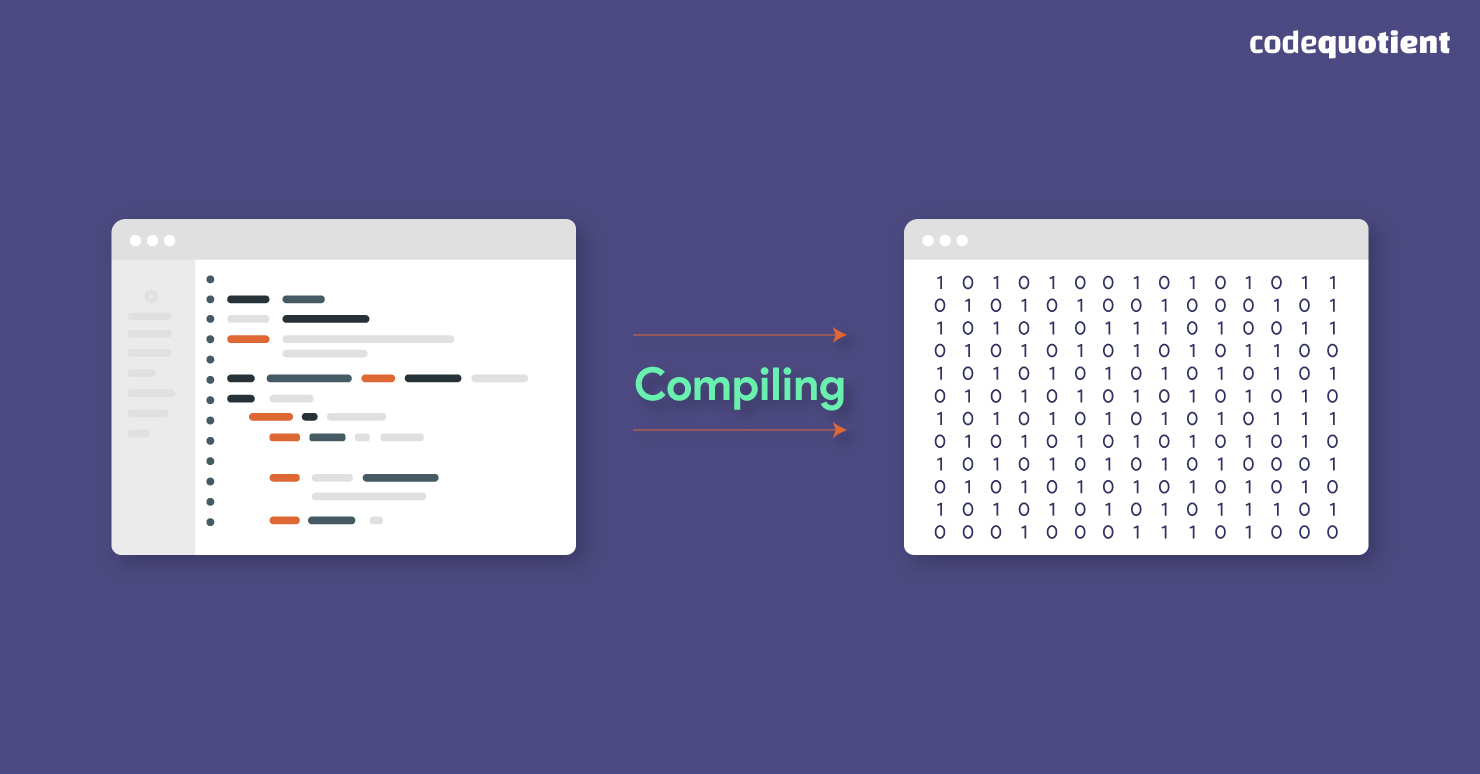What is compilation? It is the process of combining multiple sources of information into a single, unified body of work.
Compilation is a critical step in many research and writing projects. It allows researchers to gather all of the relevant information on a topic into one place, which can then be used to create a comprehensive report or analysis.
There are many different ways to compile information. Some common methods include:
- Find Kait Grange Parents Everything You Need To Know
- Sophie Rain Brita Influential American Songwriter And Singer
- Manual compilation: This involves manually gathering information from a variety of sources, such as books, articles, and websites.
- Automated compilation: This involves using software to gather information from a variety of sources. Automated compilation can be much faster and more efficient than manual compilation, but it is important to make sure that the software is accurate and reliable.
Compilation is an important skill for researchers and writers. It can help to save time and effort, and it can also help to ensure that the final product is accurate and complete.
It is an essential part of the research process, and it can help to ensure that the final product is of the highest quality.
Compilation
- Accuracy: It is important to ensure that the information in a compilation is accurate. This means checking the sources of the information and making sure that the information is up-to-date.
- Completeness: A compilation should include all of the relevant information on a topic. This means searching a variety of sources and making sure that the information is comprehensive.
- Organization: The information in a compilation should be organized in a logical and easy-to-understand way. This means using clear headings and subheadings, and making sure that the information flows smoothly.
- Presentation: The compilation should be presented in a clear and concise way. This means using a professional font and layout, and making sure that the information is easy to read.
Compilation and Research
Compilation is an essential part of the research process. It allows researchers to gather all of the relevant information on a topic into one place, which can then be used to create a comprehensive report or analysis.
- Who Is Tyler Perrys Daughter The Inside Scoop On Alexis Perry
- Gigantic A Towering 66 Country Music Legend
There are many different ways to compile information for research. Some common methods include:
- Literature review: A literature review is a compilation of the published research on a particular topic. It can be used to identify the key findings of previous research and to identify gaps in the research.
- Meta-analysis: A meta-analysis is a statistical analysis of the results of multiple studies on a particular topic. It can be used to identify the overall effect of a particular intervention or treatment.
- Systematic review: A systematic review is a comprehensive review of the research on a particular topic. It involves searching a variety of databases for relevant studies and then evaluating the quality of the studies and synthesizing the results.
Compilation is an important skill for researchers. It can help to save time and effort, and it can also help to ensure that the final product is accurate and complete.
Compilation
Compilation is the process of combining multiple sources of information into a single, unified body of work. It is an essential part of research and writing, and it can be used for a variety of purposes, such as creating reports, presentations, and articles.
- Accuracy: Ensuring that the information in a compilation is correct and up-to-date.
- Completeness: Including all of the relevant information on a topic.
- Organization: Arranging the information in a logical and easy-to-understand way.
- Presentation: Using a clear and concise format that is easy to read.
- Objectivity: Avoiding bias and presenting information in a neutral and impartial manner.
- Thoroughness: Conducting a comprehensive search for all relevant information.
- Timeliness: Ensuring that the compilation is completed within a reasonable timeframe.
- Transparency: Documenting the sources of information and the methods used to compile the information.
These eight key aspects are essential for creating a high-quality compilation. By following these guidelines, researchers and writers can ensure that their compilations are accurate, complete, organized, and easy to understand.
Accuracy
Accuracy is of paramount importance in compilation, as it ensures that the information presented is reliable and trustworthy. Without accuracy, a compilation loses its credibility and value.
- Verification of Sources:
Verifying the credibility and reliability of sources is crucial. This involves examining the author's qualifications, the publisher's reputation, and the date of publication. Cross-referencing information from multiple sources can enhance accuracy further. - Timeliness of Information:
Information can become outdated quickly, especially in rapidly evolving fields. Compilers must ensure that the information they include is up-to-date and reflects the latest developments. Regular updates and revisions are necessary to maintain accuracy. - Fact-Checking:
Thorough fact-checking is essential to eliminate errors and ensure the accuracy of the compiled information. This involves verifying names, dates, statistics, and other factual details. Double-checking against original sources and consulting with experts can enhance the reliability of the compilation. - Transparency and Documentation:
Transparency in the compilation process is vital for maintaining accuracy. Compilers should document their sources and methods clearly, allowing readers to assess the credibility of the information presented. This transparency fosters trust and enables readers to verify the accuracy of the compilation independently.
Ensuring accuracy in compilation is an ongoing process that requires vigilance and a commitment to providing reliable information. By adhering to these principles, compilers can produce accurate and up-to-date compilations that serve as valuable resources for research, decision-making, and knowledge dissemination.
Completeness
Completeness in compilation is crucial as it ensures that the compiled information provides a comprehensive and thorough understanding of the topic. Without completeness, the compilation may omit essential details or perspectives, leading to a fragmented or incomplete representation of the subject matter.
- Exhaustive Research:
Compilers must conduct exhaustive research to gather all relevant information on the topic. This involves consulting a wide range of sources, including books, articles, journals, websites, and databases. It also entails seeking out diverse viewpoints and perspectives to ensure a balanced and well-rounded compilation. - Inclusion of Context:
Completeness extends beyond the mere accumulation of facts and figures. Compilers must also include contextual information that helps readers understand the significance and relevance of the compiled material. This may involve providing historical background, explaining key concepts, or outlining the broader implications of the topic. - Avoiding Bias and Omission:
Compilers must strive for objectivity and avoid bias or omission in their selection of information. All relevant viewpoints and perspectives should be represented, even if they contradict the compiler's personal views or the prevailing narrative. Omitting crucial information or presenting a one-sided account undermines the completeness and credibility of the compilation. - Organization and Structure:
A well-organized and structured compilation enhances completeness by making it easy for readers to navigate and locate the information they need. Clear headings, subheadings, and logical sequencing help readers grasp the overall structure and identify specific areas of interest.
Completeness in compilation is essential for producing high-quality resources that empower readers with a comprehensive understanding of the topic. By adhering to principles of exhaustive research, inclusion of context, objectivity, and effective organization, compilers can create compilations that are both informative and reliable.
Organization
Organization is crucial in compilation, as it ensures that the compiled information is presented in a coherent and accessible manner. Without proper organization, the compilation may become a disjointed and overwhelming collection of data, making it difficult for readers to grasp the key points and insights.
- Logical Structure:
Compilers must arrange the information in a logical and sequential manner. This involves creating a clear outline or structure that guides readers through the compilation, allowing them to follow the flow of ideas and arguments effortlessly.
- Headings and Subheadings:
Effective use of headings and subheadings helps break down the compilation into smaller, manageable sections. These headings and subheadings act as signposts, providing readers with an overview of the content and allowing them to quickly locate specific areas of interest.
- Visual Cues:
In addition to headings and subheadings, visual cues such as bullet points, lists, and tables can enhance organization and readability. These visual elements make the information more accessible and easier to skim, allowing readers to quickly identify key points and relationships between different pieces of information.
- Cross-Referencing and Hyperlinking:
For extensive compilations, cross-referencing and hyperlinking can be valuable tools for organization. Cross-references allow readers to navigate between related sections within the compilation, while hyperlinks can connect to external resources or provide additional context.
Effective organization in compilation not only enhances the readability and accessibility of the information but also facilitates a deeper understanding of the topic. By presenting the information in a logical and structured manner, compilers empower readers to grasp complex ideas, make connections, and draw informed conclusions.
Presentation
Presentation plays a vital role in compilation, as it directly impacts the accessibility and comprehension of the compiled information. A well-presented compilation is reader-centric, employing clear and concise language, logical organization, and visually appealing design elements to facilitate ease of reading and understanding.
When presenting a compilation, it is essential to adopt a clear and concise writing style. This involves using precise and unambiguous language, avoiding jargon and technical terms that may alienate readers. Breaking down complex concepts into smaller, manageable chunks and using bullet points, lists, and tables can further enhance clarity and readability.
Logical organization is another crucial aspect of presentation. A well-structured compilation guides readers through the information in a coherent and sequential manner. Clear headings, subheadings, and transitions help readers navigate the compilation effortlessly and locate specific information they seek.
Visual elements, such as graphs, charts, and images, can also significantly improve the presentation of a compilation. These visual aids help readers visualize complex data, identify patterns and trends, and make connections between different pieces of information. By incorporating visual elements judiciously, compilers can make the compilation more engaging and accessible to readers.
In conclusion, presentation is an integral aspect of compilation that cannot be overlooked. By employing a clear and concise format, logical organization, and visually appealing design elements, compilers can create compilations that are not only informative but also easy to read and understand. This enhances the overall impact of the compilation and ensures that the intended message is effectively communicated to the readers.
Objectivity
Objectivity is a fundamental principle in compilation, as it ensures that the compiled information is presented in a fair, unbiased, and impartial manner. Without objectivity, the compilation may be skewed towards a particular viewpoint or agenda, undermining its credibility and reliability.
- Eliminating Personal Bias:
Compilers must strive to eliminate their personal biases and preconceptions from the compilation process. This involves critically examining their own beliefs and assumptions and being open to considering alternative perspectives and viewpoints. - Neutral Language and Tone:
The language and tone used in a compilation should be neutral and impartial. Compilers should avoid using emotionally charged or subjective language that may influence readers' perceptions or interpretations of the information. - Balanced Representation:
Compilations should strive to present a balanced representation of different viewpoints and perspectives on the topic. This involves including information from a variety of sources and perspectives, even if they contradict the compiler's own views. - Transparency and Disclosure:
Compilers should be transparent about their methods and disclose any potential conflicts of interest or biases that may have influenced the compilation. This transparency fosters trust and enables readers to assess the objectivity and reliability of the information presented.
Objectivity in compilation is essential for producing credible and trustworthy resources that readers can rely on for accurate and unbiased information. By adhering to principles of eliminating personal bias, using neutral language and tone, presenting balanced representation, and maintaining transparency, compilers can create compilations that are informative, reliable, and fair.
Thoroughness
Thoroughness is a critical aspect of compilation, as it ensures that the compiled information is comprehensive and inclusive. Without thoroughness, the compilation may omit essential details or perspectives, leading to a fragmented or incomplete representation of the topic.
- Exhaustive Research:
Compilers must conduct exhaustive research to gather all relevant information on the topic. This involves consulting a wide range of sources, including books, articles, journals, websites, and databases. It also entails seeking out diverse viewpoints and perspectives to ensure a balanced and well-rounded compilation. - Systematic Approach:
A systematic approach to research is crucial for thoroughness. Compilers should develop a clear research plan and follow a structured process to ensure that all potential sources of information are identified and examined. - Critical Evaluation:
Not all sources are created equal. Compilers must critically evaluate the credibility and reliability of each source before including it in the compilation. This involves considering the author's qualifications, the publisher's reputation, and the date of publication. - Continuous Updating:
Information is constantly changing and evolving. Compilers must make a commitment to continuous updating to ensure that the compilation remains comprehensive and up-to-date. Regular reviews and revisions are necessary to incorporate new information and insights.
Thoroughness in compilation is essential for producing high-quality resources that readers can rely on for accurate and comprehensive information. By adhering to principles of exhaustive research, systematic approach, critical evaluation, and continuous updating, compilers can create compilations that are both informative and reliable.
Timeliness
Timeliness is a crucial aspect of compilation, as it ensures that the compiled information is current and relevant to the users' needs. A timely compilation provides up-to-date information, allowing readers to make informed decisions and stay abreast of the latest developments in their field or area of interest.
In the fast-paced information age, where new data and insights emerge continuously, timely compilations are essential for researchers, policymakers, business leaders, and anyone seeking accurate and up-to-date information. A delayed compilation may result in outdated or irrelevant information, diminishing its value and usefulness.
To achieve timeliness, compilers must adhere to strict deadlines and work efficiently throughout the compilation process. This involves setting realistic timelines, prioritizing tasks, and allocating resources effectively. Additionally, compilers should regularly monitor the progress of the compilation and make adjustments as needed to ensure that it is completed on time.
Timeliness is not only about meeting deadlines but also about providing information when it is most needed. Compilers should consider the intended audience and the purpose of the compilation when determining the appropriate timeframe. For example, a compilation intended for immediate decision-making may require a shorter timeframe than a comprehensive compilation that serves as a reference resource.
By ensuring timeliness in compilation, compilers can create valuable resources that provide current and relevant information to users. Timely compilations empower readers to make informed decisions, stay competitive in their fields, and contribute to the advancement of knowledge and innovation.
Transparency
Transparency in compilation is of utmost importance as it builds trust and credibility with the users of the compiled information. By documenting the sources of information and the methods used to compile the information, compilers demonstrate their commitment to accuracy, objectivity, and ethical practices.
Transparency enables users to assess the reliability and validity of the compiled information. It allows them to understand the basis on which the compilation was made, including the selection criteria for sources, the methods used for data extraction and analysis, and any potential biases or limitations.
Documenting the sources of information is essential for verifying the accuracy and credibility of the compiled information. By providing detailed references, compilers allow users to trace the origins of the information and evaluate its authenticity independently.
Transparency also extends to disclosing any potential conflicts of interest or biases that may have influenced the compilation process. Compilers must be open and honest about their affiliations, funding sources, and personal viewpoints to maintain objectivity and avoid misleading users.
In practice, transparency in compilation can take various forms, such as providing a comprehensive bibliography, including detailed footnotes or endnotes, or creating a separate document that outlines the compilation methodology.
By adhering to principles of transparency, compilers can create compilations that are not only informative but also reliable and trustworthy. Transparency empowers users to make informed decisions about the information they consume and contributes to the advancement of knowledge and informed discourse.
Frequently Asked Questions about Compilation
This section addresses common questions and misconceptions related to compilation, providing concise and informative answers.
Question 1: What is the purpose of compilation?Compilation is the process of gathering and organizing information from multiple sources into a single, unified body of work. Its purpose is to provide a comprehensive and cohesive overview of a particular topic or subject.
Question 2: How can I ensure the accuracy and credibility of a compilation?To ensure accuracy and credibility, it is important to verify the sources of information, check the reliability of the authors and publishers, and critically evaluate the content for potential biases or omissions.
By understanding the purpose and principles of compilation, you can effectively utilize compilations to enhance your knowledge and decision-making.
Conclusion
Compilation plays a vital role in research, writing, and knowledge dissemination. It involves the systematic gathering, organization, and presentation of information from multiple sources to create a comprehensive and unified body of work. By adhering to principles of accuracy, completeness, organization, presentation, objectivity, thoroughness, timeliness, and transparency, compilers can create high-quality compilations that empower users with reliable and up-to-date information. These compilations serve as valuable resources for informed decision-making, the advancement of knowledge, and the progress of society.
In today's information-rich environment, the ability to compile and synthesize information effectively is more important than ever. Compilers have the responsibility to provide accurate, unbiased, and comprehensive information to their users. By embracing the principles and best practices of compilation, they can contribute to a world where informed decision-making is the norm and knowledge is accessible to all.
- Luke Beasleys Age Revealed An Update On His Years
- Dave Hester House A Peek Into The World Of Storage Wars


